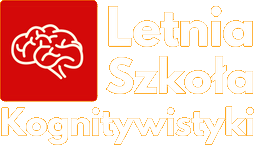Ośrodek Badań Filozoficznych, Instytut Filozofii UMCS, Wydział Filozofii i Kognitywistyka KUL, Uniwersytet Villanova, Instytut Filozofii i Socjologii PAN oraz Centrum Spotkania Kultur w Lublinie zapraszają w dniach 20-22 października 2017 r. na III Konferencję Avant. Trends in Interdisciplinary Studies pt. Understanding Social Cognition.
Wśród prelegentów i zaproszonych gości znaleźli się:
- Daniel Dennett (Tufts University, USA, book promotion)
- Morana Alač (University of California San Diego, USA)
- Him Cheung (The Chinese University of Hong Kong)
- Stephen Cowley (University of Southern Denmark)
- Arkadiusz Gut (The John Paul II Catholic University of Lublin, Poland)
- Robert Rupert (University of Colorado Boulder, USA)
- Judith Simon (University of Hamburg, Germany)
- Deborah Tollefsen (University of Memphis, USA)
- Robert Wilson (University of Alberta, Canada)
Understanding Social Cognition (20-22 October 2017)
Within the social sciences, it is widely accepted that groups of people exhibit social properties and dynamics that emerge from, but cannot be reductively identified with the actions and properties of individual members. Nevertheless, psychology and cognitive science have only reluctantly embraced the idea that something similar might happen in the domain of mind and cognition.
Relevant topics include:
- Socially situated and scaffolded individual cognition
- Social cognition from an evolutionary, cultural-historical, and ontogenetic perspective
- Psychological underpinnings of social interaction (joint, multi-agent, collective)
- Collective intentionality and social ontology
- Technologically vs. socially extended cognition
- Distributed cognition and group minds
- Current debates on mindreading, empathy, social affordances, and the cognitive bases for intersubjectivity.
Program
Francisco Pons – Emotion understanding in children. Retrospect and prospect




